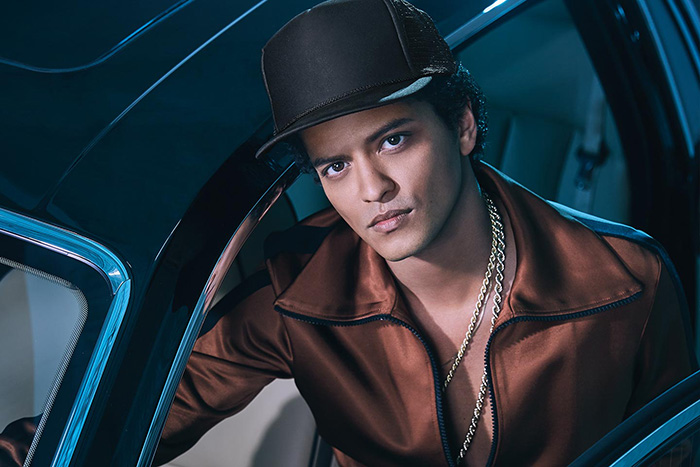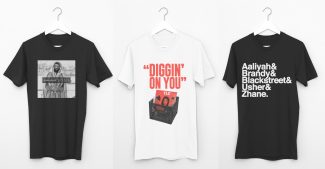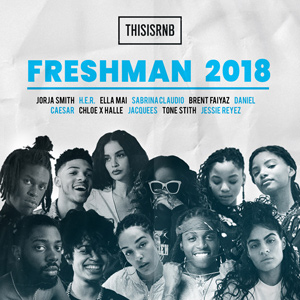
Bruno Mars makes some bold statements in his cover story for the February issue of Latina magazine. In an introspective conversation with Entertainment Director, Jesús Triviño Alarcón, the multiple Grammy Award-winning singer/songwriter/producer discusses his Puerto Rican pride, his profound respect for and the important cultural impact of “black music” on popular music, and dealing with the loss of his mother.
Mars is the first male celebrity to grace the magazine’s cover since Romeo Santos in 2014. The issue hits newsstands on February 14. Inside the mag, the 24K Magic star poses for portraits by photographer John Russo, and sits inside of a car with its windows rolled down. The story itself is a window into Mars’ views on life and identity, allowing him to clear up misconceptions about his pride and about his race.
“I’d love to clear [this] up in Latina magazine,” he says at one point in the article. “I never once said I changed my last name to hide the fact that I’m Puerto Rican. Why would I fucking say that? Who are you fooling? And why would anyone say that? That’s so insulting to me, to my family. That’s ridiculous. My last name is Hernandez. My father’s name is Pedrito Hernandez, and he’s a Puerto Rican pimp. There’s no denying that.”
“My dad nicknamed me Bruno since I was 2 years old,” he added. “The real story is: I was going to go by ‘Bruno,’ one name. Mars just kind of came joking around because that sounds bigger than life. That was it, simple as that. I see people that don’t know what I am, and it’s so weird that it gets them upset.”
Speaking of race, Mars also addressed the current conversations around discrimination. “I hate that we’re even having a conversation about injustice in America,” he said. “That we are having a conversation about this in 2017; the same conversation that’s been had decades and decades ago.”
See more highlights from the Latina cover story below.
ON BEING MULTI-RACIAL: “There are a lot of people who have this mixed background that are in this gray zone. A lot of people think, ‘This is awesome. You’re in this gray zone, so you can pass for whatever the hell you want.’ But it’s not like that at all. It’s actually the exact opposite. What we’re trying to do is educate people to know what that feels like so they’ll never make someone feel like that ever again. Which is a hard thing to do. Because no one can see what we see and no one can grow up with what we grew up with. I hope people of color can look at me, and they know that everything they’re going through, I went through. I promise you.”
ON THE MUSIC BUSINESS: “It’s an oxymoron—the music business; like the art business. You’re making a business out of these songs that I’m writing. And how are you going to tell me that this song that I’m writing is only going to be catered to Puerto Ricans or to white people or only Asian people. How are you going to tell me that? My music is for anybody who wants to listen to it.”
ON HIS FATHER: “My whole sense of rhythm is because my dad was teaching me bongos as a kid. He’s an old-school working musician, so that’s where the pinky rings come from, the patent-leather shoes, the suits, and the pompadour. It all stems from watching my father. I remember at the time, me and my sisters would be a little embarrassed when he would take us to school in his big-ass Cadillac. No one had Cadillacs in Hawaii. But my dad would show up in some boat-looking Caddy wearing some silky shit, and we’d run out into the car as soon as possible. And here I am wearing the swap-meet gold, driving Cadillacs.”
ON THE LOSS OF HIS MOTHER: “My life has changed. She’s more than my music. If I could trade music to have her back, I would. I always hear her say, Keep going and keep doing it.’”
ON “BLACK MUSIC”: “When you say ‘black music,’ understand that you are talking about rock, jazz, R&B, reggae, funk, doo-wop, hip-hop, and Motown. Black people created it all. Being Puerto Rican, even salsa music stems back to the Motherland [Africa]. So, in my world, black music means everything. It’s what gives America its swag. I’m a child raised in the ‘90s. Pop music was heavily rooted in R&B from Whitney, Diddy, Dr. Dre, Boyz II Men, Aaliyah, TLC, Babyface, New Edition, Michael, and so much more. As kids this is what was playing on MTV and the radio. This is what we were dancing to at school functions and BBQs. I wouldn’t be here if it wasn’t for these artists who inspired me. They have brought me so much joy and created the soundtrack to my life filled with memories that I’ll never forget. Most importantly, they were the superstars that set the bar for me and showed me what it takes to sing a song that can get the whole world dancing, or give a performance that people will talk about forever. Watching them made me feel like I had to be as great as they were in order to even stand a chance in this music business. You gotta sing as if Jodeci is performing after you and dance as if Bobby Brown is coming up next.”




